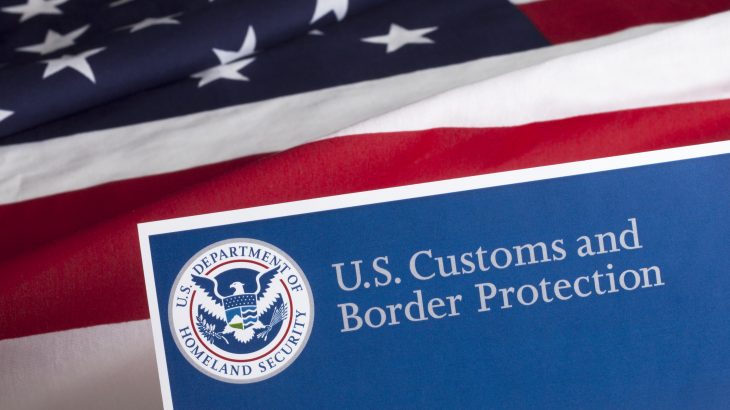UPDATE: CONGRESS HAS NOW PASSED THIS BILL. IT WAS FOLDED INTO THE NATIONAL DEFENSE AUTHORIZATION ACT (NDAA) AND PASSED THE HOUSE AND SENATE ON DECEMBER 16. IF YOU ARE SEEKING AN E2 VISA VIA CITIZENSHIP BY INVESTMENT, PLEASE CONTACT US TO DISCUSS YOUR OPTIONS.
The US House of Representatives has passed the Advancing Mutual Interests and Growing Our Success (AMIGOS) Act, which could have repercussions for those seeking an E2 Visa via Grenada or Turkey.
While the AMIGOS Act is aimed at opening the E2 Treaty Visa and the E1 Treaty Trader Visa to Portuguese citizens, it also includes a clause stipulating anyone acquiring citizenship of an E2 country or E1 country via investment must hold that citizenship for three years before they are eligible for to apply for an E2 visa or E1 visa.
How might this ruling affect me and my potential E2 Visa application?
The E2 visa permits a citizen of a treaty country to move to the United States for the purposes of investing in and operating a business or franchise. If you are not a citizen of an E2 treaty country, you are currently permitted to become a citizen of an E2 country and then apply for an E2 visa. There are currently no rules regarding the length of time you must hold citizenship of an E2 country before applying.
Davies & Associates was one of the first US law firms to assist clients through this two step process of acquiring citizenship by investment and then an E2 visa. Most of our clients typically obtain citizenship by investment (CBI) of either Turkey or Grenada because both are E2 Treaty countries with relatively fast and cost-effective routes to citizenship. Once we have assisted our clients with obtaining their Turkish or Grenadian passport, we then assist them with applying for an E2 visa. The process can take as little as six to nine months, but under the changes proposed in the AMIGOS Act this would increase to just over three years.
In fact, just last week, we obtained an E2 visa for an Indian client who first had to obtain a Grenada passport because India does not hold an E2 Treaty with the United States. The whole process was wrapped up in less than a year (including a six-month delay because E2 processing was suspended at the US Embassy in Barbados which covers Grenada). India is not the only country not to be eligible for the E2 visa – Russia, China, Vietnam, South Africa also do not hold E2 treaties with the US. Click here for a full list of countries with an E2 treaty with the United States. If your country is not on the list you would first need to obtain citizenship of an E2 country.
Will the AMIGOS Act become law?
The AMIGOS Act has just passed the House of Representatives. For it to become law, it would also need to pass the Senate. Frequently the bill introduced in one chamber is not the same as the bill introduced in the other chamber. If different bills are passed in both houses then the two bills go to “conference” where the differences are ironed out into one mutually agreeable bill.
We currently do not have visibility of the Senate bill or whether this would be given time in the Senate. With one chamber, the House, controlled by the Republicans, and the other chamber, the Senate, controlled by Democrats, it can often be tricky to get any legislation passed. However, since the target of this bill is improving bilateral relations with Portugal, it may receive bipartisan support. The changes to the length of time a person must hold citizenship are not the headline part of the bill and may pass under the radar.
Next Steps…
As we do not know whether or not the AMIGOS Act will pass, we cannot advise clients definitively on this matter. If you are considering an E2 application via Grenada or Turkey you may wish to try to complete the process soon in case the AMIGOS Act becomes law.
There is no information on whether this would retroactively impact people who already hold an E2 visa based upon Grenada or Turkish citizenship that has been held for less than three years. Please note, the AMIGOS Act, as passed by the House only impacts people who obtain citizenship by investment. If you obtain citizenship of an E2 country via non-investment routes, you would still be permitted to apply for the E2 visa immediately under the proposed law.
It is also worth noting that, for some of our Grenada CBI clients, the primary applicant has filed a joint application with their spouse. But for others, the primary applicant has applied for Grenada CBI as an individual and then the spouse has obtained their passport later by virtue of their marriage to a Grenadian citizen. It is difficult to know at this stage how a US consular officer would view an E2 application from the spouse under this second scenario – i.e. whether they would be subjected to the three year rule proposed in the AMIGOS Act.
This is a developing story. To learn the latest information and to learn more about CBI to E2, please contact our firm for a free consultation.
This article is published for clients, friends and other interested visitors for information purposes only. The contents of the article do not constitute legal advice and do not necessarily reflect the opinions of Davies & Associates or any of its attorneys, staff or clients. External links are not an endorsement of the content.





























